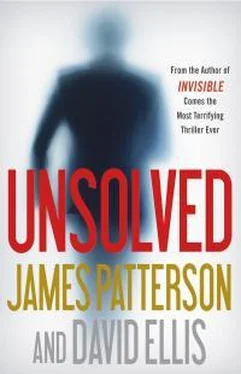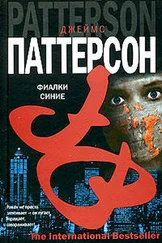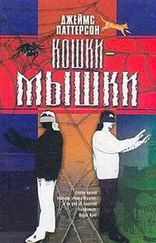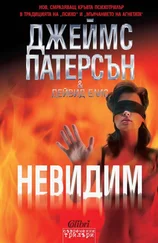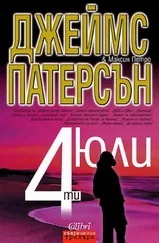“Suit yourself.”
I get in on the driver’s side and sink back into the seat. I don’t want to touch the steering wheel, but I reach for it, noting that I can barely touch it with my fingertips even though my arms are fully extended. My feet don’t reach the brake and gas pedals.
“Could we trade places?” I ask.
“Okay…”
I get out, and Robert gets in, settles in the seat, puts a hand atop the steering wheel.
“Pretty comfortable fit for you,” I say.
“Yeah.”
“But not for a woman who’s a foot shorter than you.”
Sergeant Crescenzo blinks twice, thinks about it, then turns and looks at me.
“Someone other than Nora Connolley drove this car last,” he says.
8
SERGEANT ROBERT CRESCENZO and I leave the garage and go back to the patio. He walks along the cobblestone path. I walk in the grass next to him.
“At the risk of stating the obvious,” he says, “just because someone else drove her car last doesn’t mean that that somebody killed her.”
“You’re absolutely right,” I agree.
“Maybe one of her kids drove it. She had two children, I think.”
“Three,” I say. “Mary lives in Oklahoma, Sarah lives in Baton Rouge—”
“But her boy, Michael, lives here in New Orleans. An officer spoke with him.”
“Yeah, but he was in Dallas the week she died.”
Sergeant Crescenzo stops walking. I turn to look at him.
“You’ve been contacting witnesses on my case?” he says.
“I didn’t contact him. I saw his trip on Facebook. Besides,” I say, “I thought it wasn’t a case. Her death was an accident, right?”
He gives me a sidelong glance.
“I just used public information,” I say. I turn back to the patio. It is no wider than the sliding glass door but it’s large enough to allow for a small table with an umbrella and a gas barbecue grill.
“The patio is immaculate,” I say.
Sergeant Crescenzo stands next to me. “A clean patio? If that doesn’t say murder, I don’t know what does.”
“It’s not just clean, Robert. It’s spotless. Like it was scrubbed down.”
He takes a look and lets out an equivocal hum, conceding the possibility without conceding the importance.
I step from the grass to the patio, walk to the sliding glass door, and look back down at the path I just made.
“See my shoe prints on the concrete?” I say. “All I did was walk from the garage to the back door on the grass, and the dirt on my shoes made faint marks. And the grass is dry.”
The sergeant doesn’t seem impressed.
“She was found dead in the morning, right?” I ask. “By the cleaning lady?”
“Right.”
“The day before that, did it rain?”
Robert looks up, trying to remember. “I don’t recall.” He closes his eyes. “But something tells me you already know the answer.”
“It rained the day before she was found dead,” I say. “It rained just over half an inch. It stopped by four p.m.” I point to the concrete. “I made a faint impression on the patio after walking on dry grass. If she came home after four and walked from the garage to the back door on wet grass, she would have marked up the patio. And it hasn’t rained since then, so don’t tell me a later rainfall washed it off.”
“Hey, I’m not telling you anything, ” he says a bit defensively. “You don’t know that she went out at all the previous day. And even if she did, you don’t know that she took this same walk from the garage to the back patio. And why wouldn’t she walk on the cobblestone path, which would keep her shoes drier? Hell, you don’t even know that she drove her car that day. Maybe she took the bus. There’s a bus stop a block away.”
“You’re right,” I say. “I don’t know any of those things. But neither do you, Robert.”
He does that double-blink thing again.
“That’s why you should open an investigation,” I say.
9
SERGEANT CRESCENZO opens the back door to Nora Connolley’s house.
“You’re not gonna find anything in here,” he says. “The place is immaculate.”
“Like her patio.”
“She was selling her house, Emmy. She kept it looking nice.”
“One of many reasons she was a good target,” I say. “Nobody wonders why it was cleaned up so neatly.”
We open the door to the kitchen. It is a simple square shape. The cabinets are dated. The tile floor is clean but not just-washed clean. No doubt the responding officers were inside here, and the cleaning lady wouldn’t have come again once she discovered her boss dead. Everything is in order. No dishes in the sink, no crumbs on the counter. There is a small silver garbage can by the dishwasher. I put my foot down on the lever, pop the top, and look inside. Empty.
“What time did the medical examiner give for her death?” I ask. “I assume, based on lividity and all the stuff they do, they put her death at the night before, not the morning.”
I look at Robert Crescenzo, who allows a grudging smile. “That’s correct. She slipped in the shower the night before. The shower was running when the cleaning lady found her the next morning.”
“So she took a shower at night.”
“Some people do that, Emmy.”
True enough. I look in the refrigerator. There is a gallon of skim milk, unopened. A full bottle of orange juice, the top still sealed. The fruit drawer below is filled with apples and strawberries, not quite fresh anymore. A pound of ground turkey, still wrapped in plastic, rests next to a six-pack of yogurt.
“Looks like she’d just picked up some groceries,” I say. “Never got a chance to eat them. Y’know, Robert, if we did an autopsy, we’d know about her stomach contents. Whether she ate dinner the night she died.”
“Right,” he says. “If it turns out she didn’t eat dinner the night before, we’ll know for sure she was murdered!”
“Robert, Robert, Robert.” I close the refrigerator. “I’m not saying that. But who comes home and takes a shower before eating dinner?”
“I’m sure some people do.”
I raise my eyebrows. Robert leads me out of the kitchen and into the master suite, the bedroom and bathroom. The dresser has a hairbrush on it and several photographs, presumably of Nora’s children and grandchildren. On the bed is a pile of clothes—probably the ones she took off before the shower—and a cane.
The master bath is small. A single vanity, a toilet, a bathtub/shower. A terry-cloth robe hangs from a hook on the door.
I step carefully toward the shower. A dark spatter of blood near the top curve of the tub and a drip downward. By all appearances, she was facing the shower fixture, slipped, fell back, and hit her head. As she lay there dying, her body slid farther down into the tub.
We leave; Robert locks the front door behind him.
“There’s a visitation tomorrow,” he says. “Funeral’s the next day.”
“You need to do an autopsy,” I say. “And open an investigation.”
Robert uses his arm to wipe away some sweat on his forehead. “Emmy, listen. You know how this goes. You can throw out plenty of theories that I can’t disprove. You could say that a Martian did this, and I couldn’t prove that that didn’t happen. But I also couldn’t prove that it did happen. There’s an innocent explanation for everything you’re saying. And even if you’re right about all of this, a defense lawyer would tear our case to shreds.”
“I’m not trying to convict him,” I say. “I’m trying to catch him.”
“Look, I hear you. I’ve seen some crazy shit myself. But unless you can give me more—”
“Here’s what I can give you,” I say. “I know of six victims in his current spree. Each victim did charity work of some kind for the poor or homeless or sick. Each of them lived alone. Each of them lived in a single-story house. Each of them had a garage and a private backyard hidden by foliage. Each of them lived very close to a bus stop. Each of them had his or her house for sale and posted photos and videos of the home’s interior on the internet. Each of them had tiny, needle-size puncture wounds on the torso that could not be explained.”
Читать дальше
